Members of the Union of Grinnell Student Dining Workers (UGSDW) officially ratified the first contract in U.S. history to cover all undergraduate student workers. The vote passed 162-1.
On Friday, Grinnell College signed the contract, which takes effect immediately. The historic contract raises the base wage for all student workers to $13.50, an increase of $5.25 since bargaining began in 2022, and is the culmination of over a year and a half of collective bargaining between UGSDW and Grinnell College.
Hannah Sweet `25 and Conrad Dahm `26, UGSDW co-presidents, publicly announced the ratification of the contract immediately after voting ended at 5 p.m. on Thursday, April 4, surrounded by the UGSDW executive board. The new contract will apply to all student workers on Grinnell’s campus, which Dahm estimated to be between 600 and 700 employees.
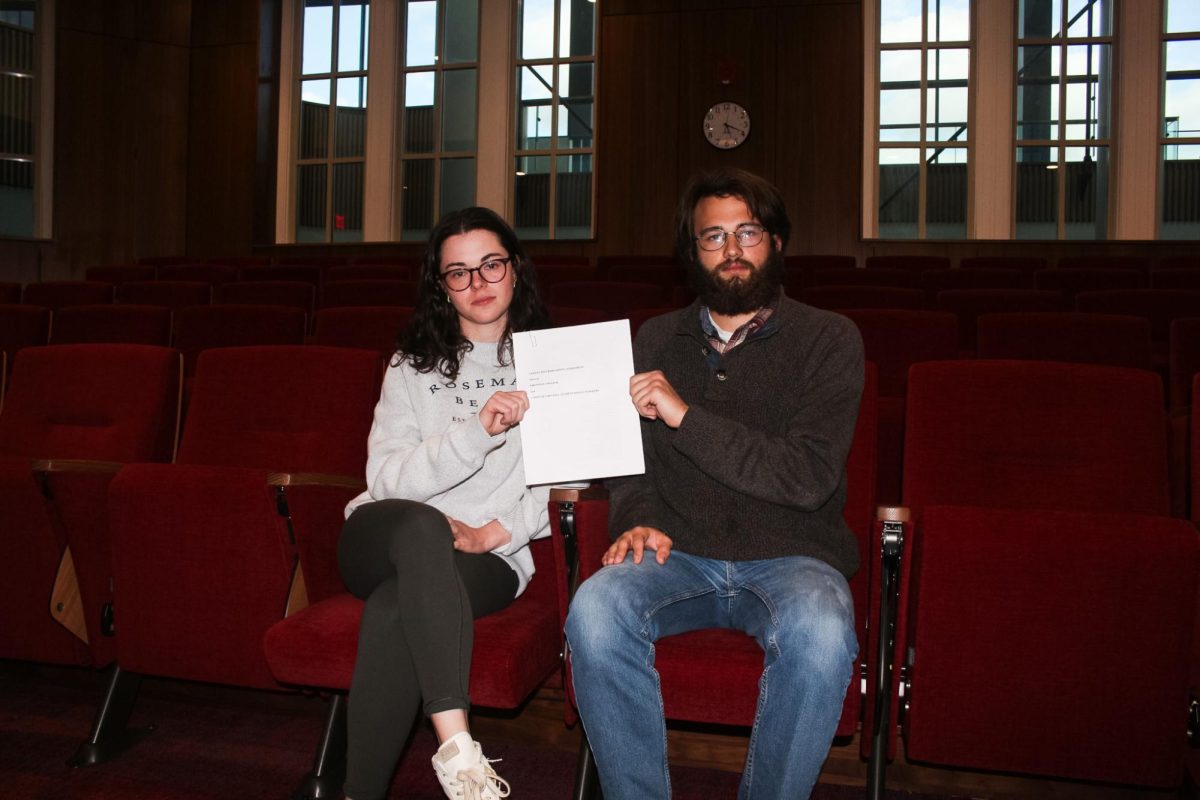
“We showed that worker power and solidarity cannot be defeated,” Dahm said after reading the vote tally and signing the contract.
“We showed that unions don’t give up,” Dahm told The S&B. “We fight to the bitter end because we care about what we’re doing.”
Ellen de Graffenreid, vice president of communications and marketing, wrote in a statement to The S&B that Grinnell College “sees ratification as a very positive development.”
“The College is pleased to have an agreement that clarifies students’ roles as employees and their role as students.” De Graffenreid said the College could not comment on the legal fees spent on collective bargaining.
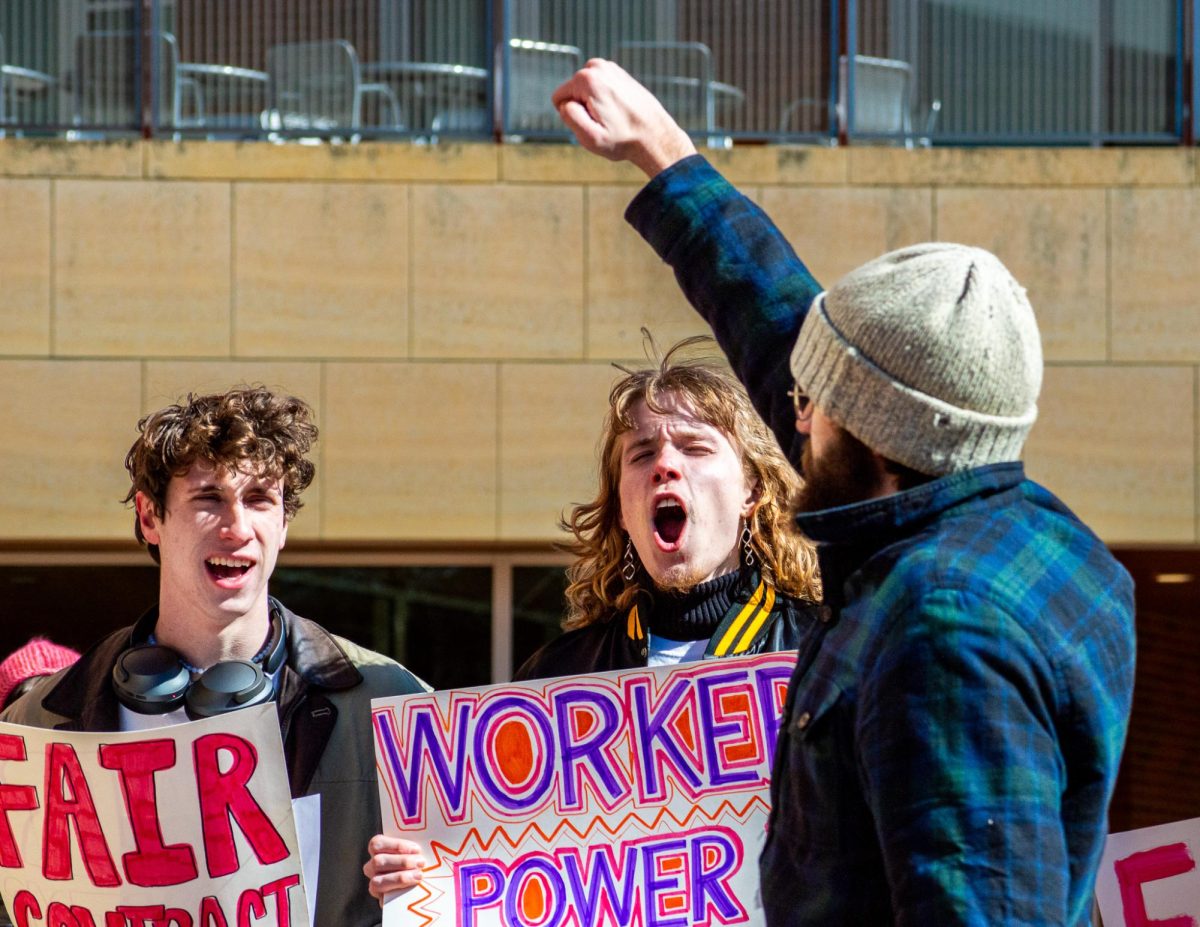
Contract brings higher wages and stronger worker protections
In addition to the higher base wage, which will increase by 27 cents each academic year until the contract expires on June 30, 2027, the contract also establishes stricter worker protections.
All student workers will now be protected under just cause, meaning employers must have a legitimate, fair reason to fire or discipline workers. If any student worker feels they have been unfairly disciplined or discharged, they will have access to a grievance procedure to address the issue. In previous collective bargaining negotiations, the College had proposed to exclude academic workers from just cause protections, which would have left many student workers as “at-will” employees, subject to firing at any time without a clear reason.
The new contract also provides new compensation options for Community Advisors (CAs), who work 16 hours per week as trained residence hall leaders. CAs will now have the option of choosing to be compensated via a stipend equivalent to their room grant, which is set at $3,938 per semester for the 2024-2025 academic year. Currently, the only compensation option is a room grant deducted from the student’s semesterly charge.
Additionally, the new contract introduces a change in the arbitration process — the final step of a grievance procedure. In the past, the dean of students was the decider on arbitration, according to UGSDW leadership. Now, third party arbitrators will be used.
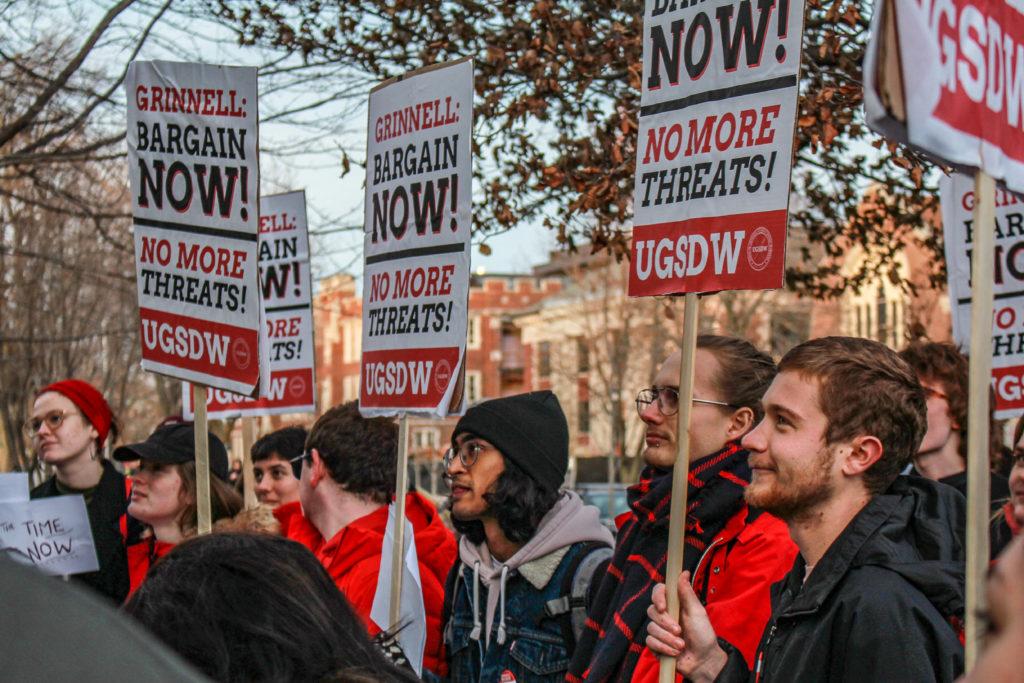
Before reaching this agreement, UGSDW and Grinnell College bargained over the terms of a new contract for over a year and a half. During this time, there were frequent instances of significant disagreement between UGSDW and the College, culminating in a strike and legal action.
After the College provided a proposal to UGSDW in spring 2023, the Union voted to strike. When Union leadership informed the College about the strike, the College sent an email to students alleging the strike would be unlawful, ending bargaining for the duration of the strike. On May 10, 2023, the College filed an Unfair Labor Practice complaint (ULP) alleging bad faith bargaining on the basis of an “illegal strike.” UGSDW responded on May 11, 2023 by filing a ULP alleging the College was illegally refusing to bargain and had engaged in coercive statements.
UGSDW and the College reached a settlement on Feb. 20, 2024 to resolve the ULP complaints and returned to the bargaining table in late February after nearly a year to negotiate the contract approved Thursday.
Prior to this conflict, on Nov. 7, 2022, the College alleged a UGSDW’s newsletter and video alleging the College walked out of negotiations “materially misrepresent[ed] the collective bargaining session.” UGSDW stood behind its claim, but the College eventually eliminated in-person audiences for the bargaining sessions. The subsequent sessions were instead livestreamed.
In fall of 2022, UGSDW and the College disagreed about the Union’s method of distributing its newsletter around campus, with more claims from both sides of National Labor Relations Act (NLRA) and collective bargaining agreement violations.
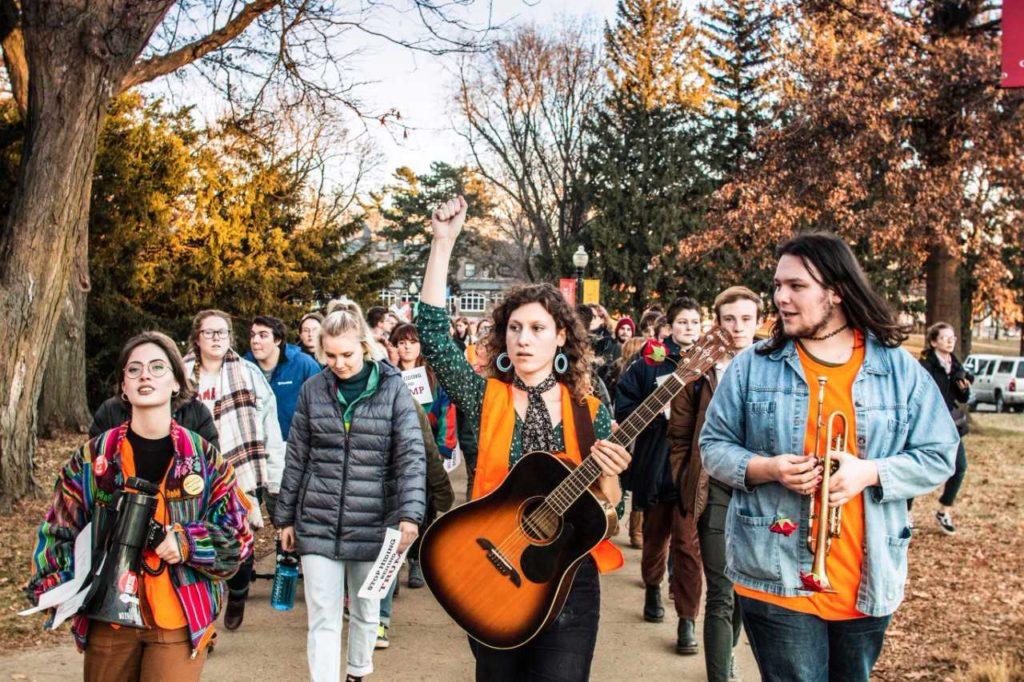
UGSDW plans next steps following contract ratification
Dahm said although UGSDW leaders had to make compromises to reach this agreement, they didn’t “give up what we believed was important to our membership.”
“We won the best contract under the circumstances,” Sweet said. “If you show up and they give you everything that you asked for, you’re not asking for enough.”
The College said this agreement is “consistent with its positions throughout collective bargaining,” according to de Graffenreid, who provided links to recordings of bargaining sessions and correspondence between the College and UGSDW. The College’s Feb. 15, 2023 contract proposal can be found on the College’s website.
“Many of the terms included in the final contract were offered by the College during collective bargaining in the fall of 2022 and spring of 2023,” de Graffenreid said.
While the majority of the language and terms have remained consistent over time, the just cause and CA compensation components are new. Prior to this agreement, the College had said it “would not pay stipends to student employees” nor include academic workers under just cause protections. These positions were reversed in the latest contract.
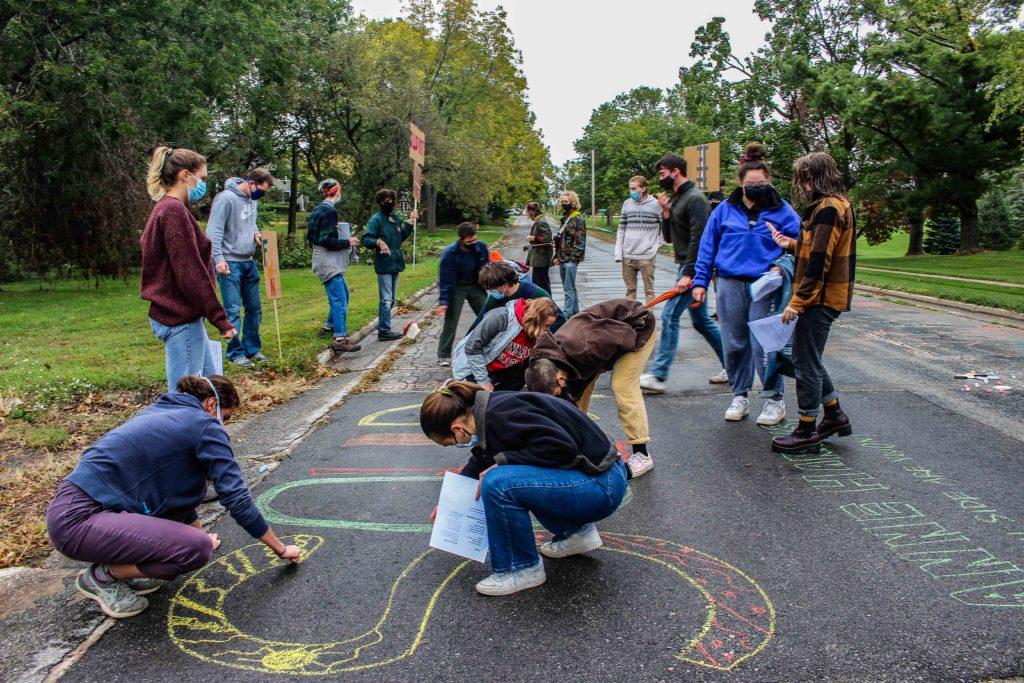
Independent of a formal contract, the College increased wages to $13 per hour beginning in fall 2023. Students have voiced concerns that increased wages will lead to decreased hours. Dahm said while the concern is valid, he is confident UGSDW can use Article 3.10 to prevent major workplace changes.
Article 3.10 states UGSDW will have an opportunity to bargain over workplace rules that materially alter the essential functions of any position, the categorical elimination of a student worker position and reductions in force.
Additionally, as a result of the February settlement between UGSDW and the College, the College now requires student workers to sign a Family Educational Rights and Privacy Act (FERPA) release form before the College can provide UGSDW with employee information including name, employment status, job title(s), college post office number, cell phone number, college email address, dates of hire and dates of resignation or termination. UGSDW sent an email to Union members encouraging them to sign the FERPA release form, stating it would allow UGSDW to “know who works where” and “the issues in that workplace.”
Dahm said UGSDW will now focus on enforcement of the contract. “No matter who you are or where you work, we will be there and we will represent you to our best and full ability with the full strength of the Union behind us,” Dahm said. He noted he does expect the College to comply with the contract.
Sweet added that she plans to prioritize discussions of UGSDW’s history and purpose, and how it can function as a “political entity.”
“Unions are political entities. When you look at some of the most impactful social movements in our history, unions have been at the heart of them,” Sweet said, emphasizing that any actions or stances UGSDW takes must be democratically decided on.
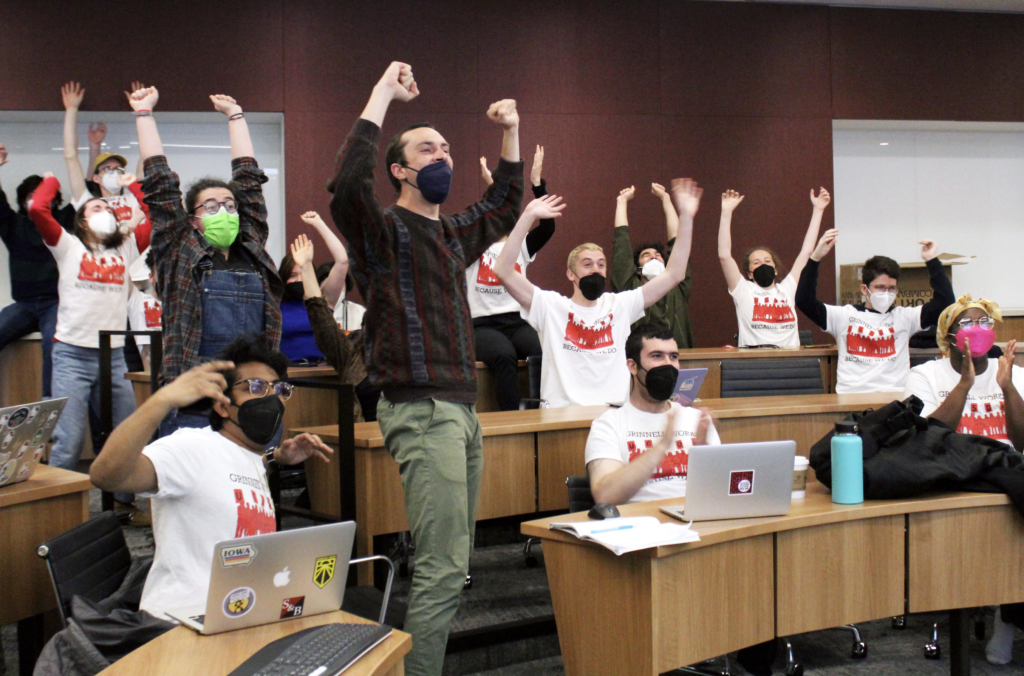
Grinnell could be the first of many wall-to-wall contracts
The contract signed Thursday is the latest historic achievement by UGSDW, but the Union is not new to historic feats — Grinnell College was also the first fully unionized undergraduate school in the U.S..
In 2016, Grinnell student workers established a Union for dining hall workers. In 2018, the Union voted to expand membership to all student workers. At the time, however, the College was firmly against the idea, hiring legal representation and submitting an appeal to the National Labor Review Board (NLRB) to oppose the vote.
The Union at that time decided to vacate its expansion win, fearing the then-Republican-controlled NLRB would rule against them, setting a dangerous precedent for all campuses attempting to unionize.
Raynard Kington, Grinnell College president at the time, wrote in a statement that “the College values the work performed by students; however, our view of these jobs is based upon the central and fundamentally educational relationship between students and Grinnell College. Therefore … we oppose the intrusion of collective bargaining into the educational relationship.”
Four years later, with a more labor-friendly NLRB board in place, Grinnell College became the first fully unionized undergraduate school in the U.S. after UGSDW expanded membership from exclusively dining workers to all student workers. This time, recently-hired President Anne Harris and the Board of Trustees did not oppose the expansion. U.S. President Joseph Biden endorsed the student Union during a CNN town hall at the College in November 2019.
Grinnell is one of only three institutions — along with the University of Oregon and the California State University system — with wall-to-wall undergraduate student unions, according to the Chronicle of Higher Education. At least 15 other institutions have unionized either dining services or residence life workers.
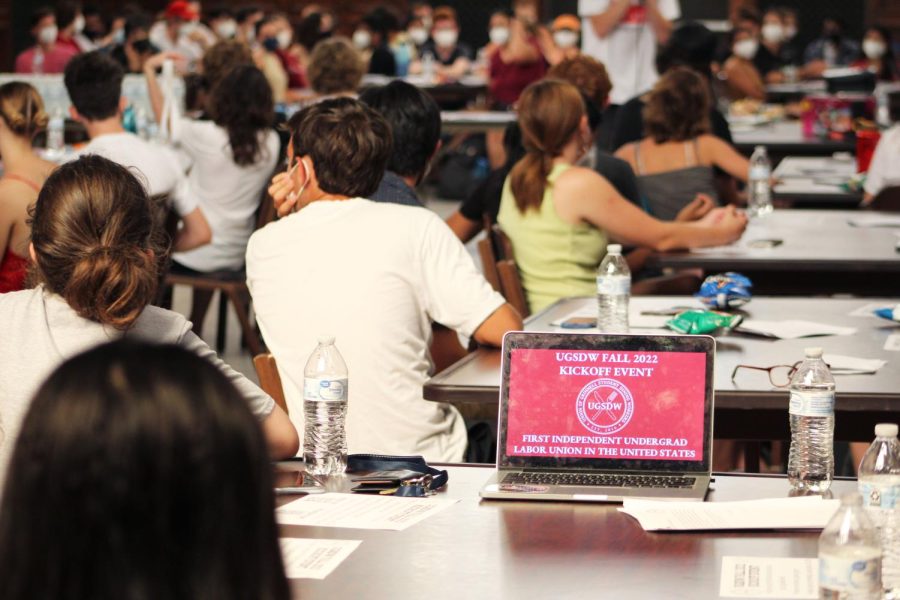
Sweet and Dahm said UGSDW has taken inspiration from Dartmouth College, Kenyon College and University of Oregon, among others, in addition to benefiting from volunteer lawyers. They also said UGSDW is frequently in contact with other unions across the U.S. to share bargaining strategies.
“I think some of the work we’ve done can be replicated and spread to other wall-to-wall unions,” Dahm said. “Hopefully they take some inspiration like we’ve done from other labor movements and win a union and win a contract to help their student workers.”
Student Worker Collective Dartmouth congratulated UGSDW in a statement to The S&B, writing, “We are honored to hear that our contract has been an inspiration to them, especially since their support to us back in 2020, when undergraduate unionism had not taken off yet, was critical to our decision to organize into a union.”
Cory McCartan `19, the founder and first president of UGSDW, also sent a statement to The S&B, writing, “When we started our expansion campaign in the fall of 2017, I was hopeful we would get here, but had no idea how long it might take.”
“There were times when the college’s anti-union actions were completely at odds with its core values,” McCartan said. “But in the end, seeing student workers win this contract has made me so proud to be a Grinnellian and a former member of this great Union.”
Contributed reporting from Taylor Nunley and Nick El Hajj.
Editor’s Note: As student workers, all staff members of The S&B are represented by UGSDW. The S&B remains an independent newspaper and is committed to maintaining its integrity in reporting.
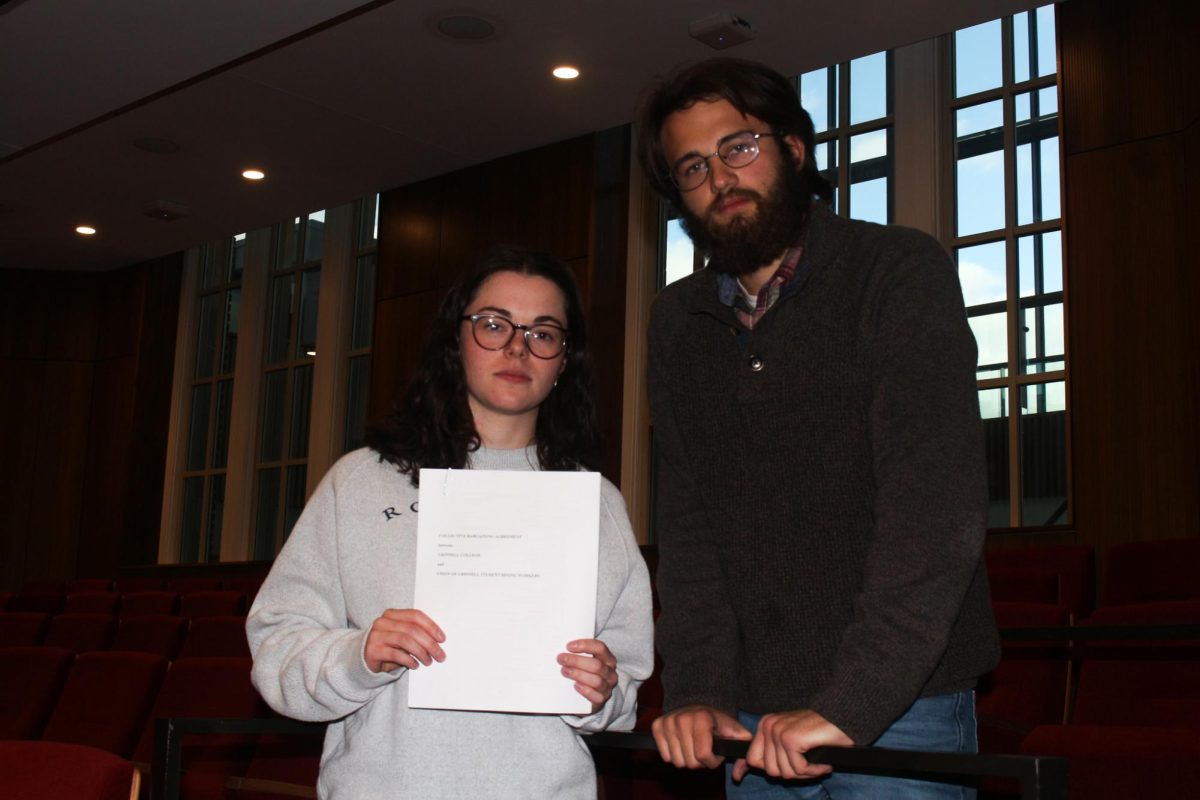




























































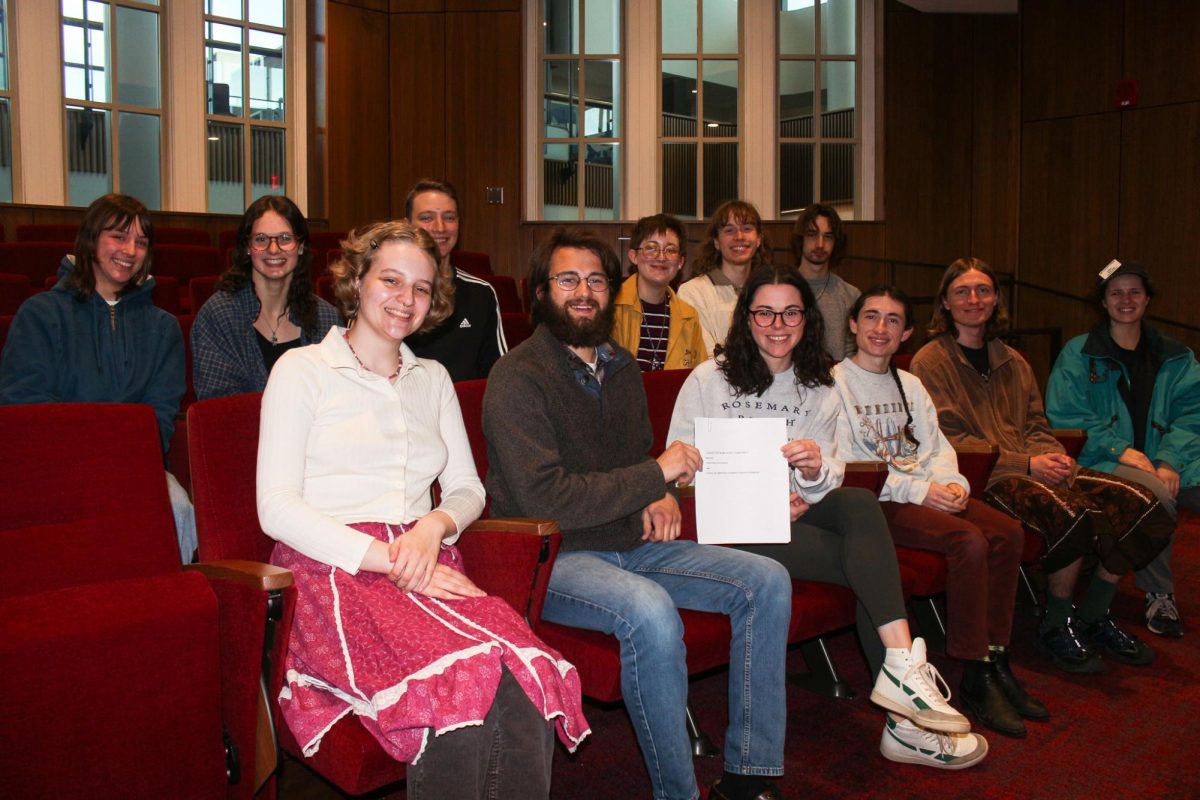
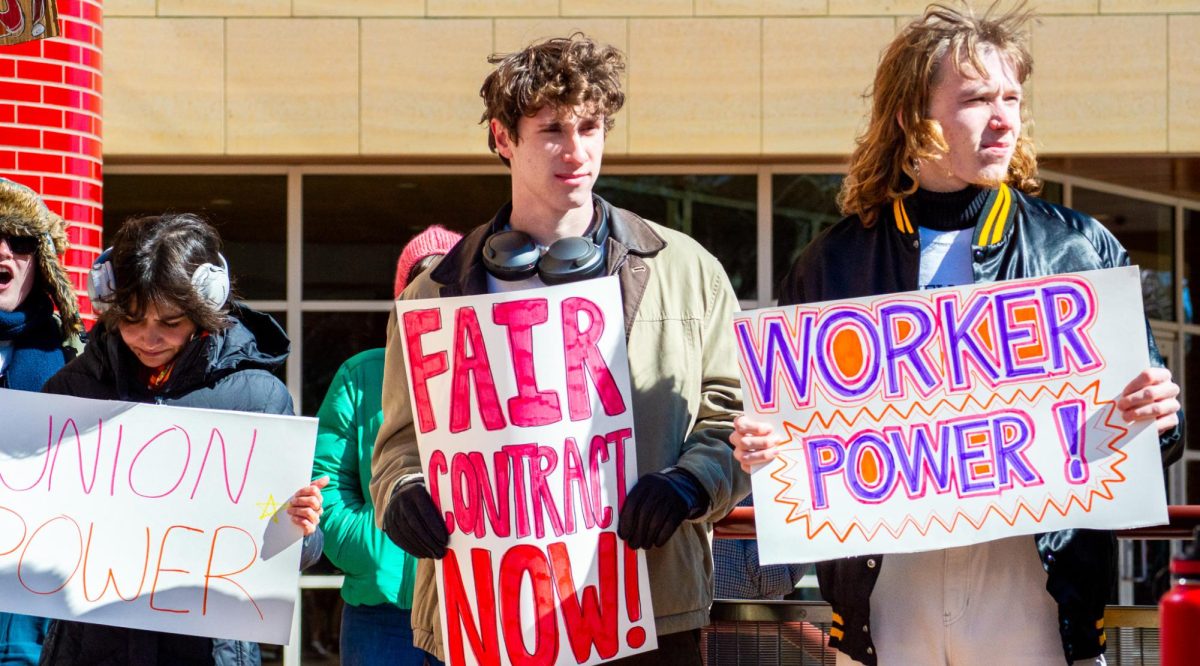
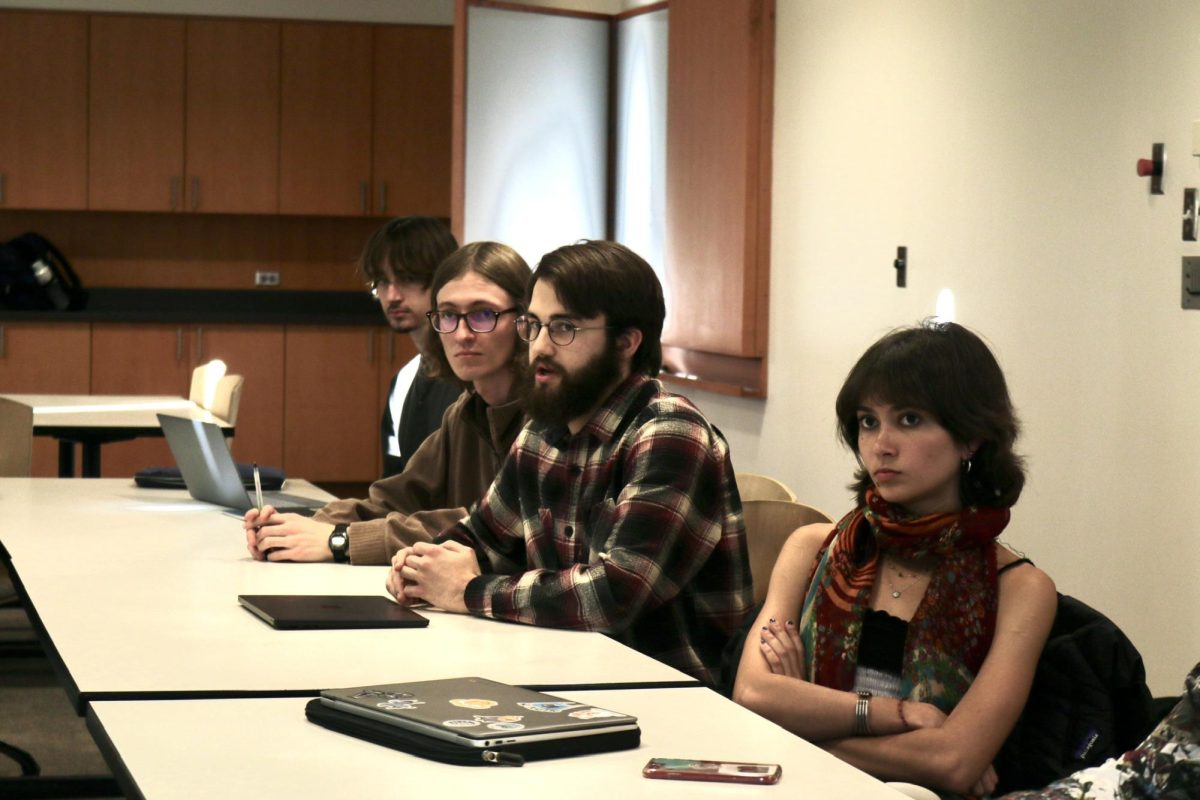

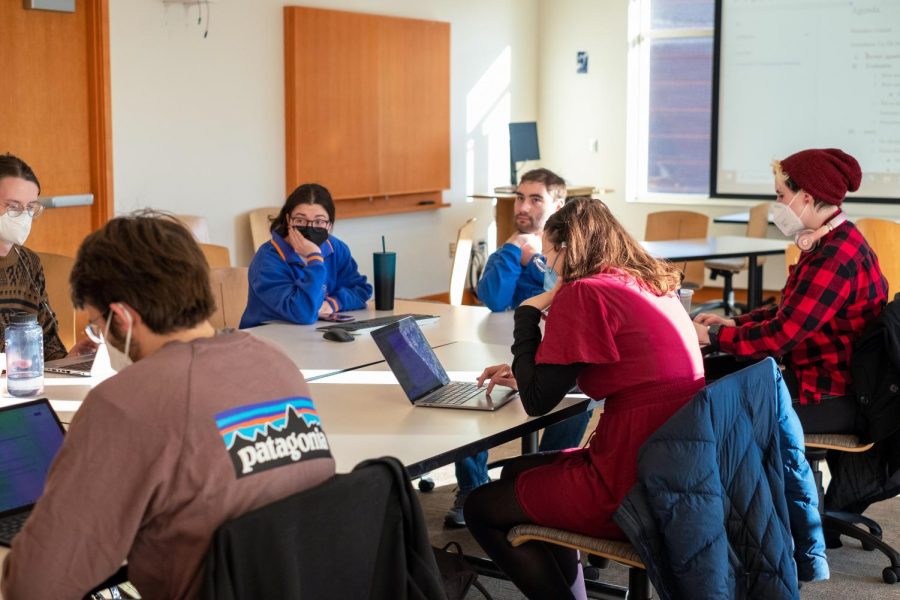



Cyndi Oberle-Dahm • Apr 4, 2024 at 6:37 pm
excellent! I am so proud to see that the Grinnell students are working to protect and support the rights of all workers. I am 100% in support of all workers everywhere. It started off as a tiny wave, but now it is a tsunami! Union strong! Stay #UnionStrong Grinnell.